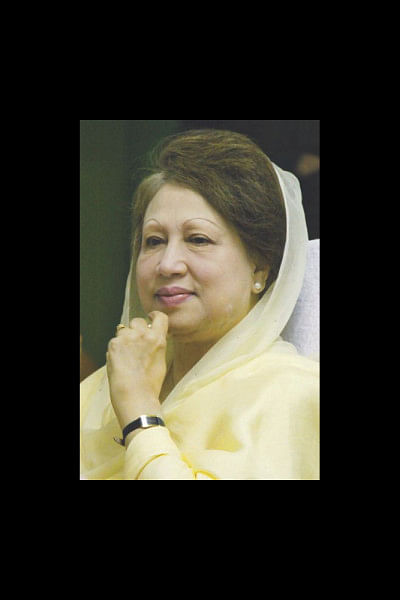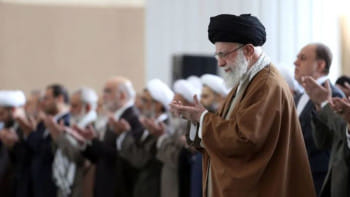BNP's Dilemma

UNOFFICIAL though it is, the opposition Bangladesh Nationalist Party's (BNP) decision to participate in the Dhaka and Chittagong City Corporations elections is a trifle surprising. This is especially so for it came within weeks after the disappearance of its leader Salahuddin Ahmed, who the party claims was abducted by plainclothes policemen.
The BNP now faces an array of hurdles, difficult and dangerous, before its future politics. Thousands of its members and workers are behind bars and a few thousand more are hiding. BNP leaders in Dhaka and some other major cities such as Chittagong and Sylhet have not been successful in carrying out the party's agitation programmes or enforcing a slew of general strikes that the BNP has called. The strike has turned into a farce in Dhaka, so is the blockade in some parts of the country.
To make matters even more complicated, some of its leaders, in private conversations, acknowledge that they might not be able to force the Awami League (AL) to hold a dialogue over the next general election. In fact, a lot of old guards in the party think that it is high time that the BNP withdraws its agitation programme, leave Jamaat and wait for the AL government to call snap polls, which they are not even sure the AL will do.
In a rare display of the party's softened stance, BNP chairperson Khaleda Zia, in her latest presser, hinted at giving the biggest leeway so far, that her party might participate in the next election even if the AL remains in power. The party does not have many options at hand either. Its grassroots are tired and are increasingly finding it difficult, if not impossible, to carry the ongoing movement forward without losing public support. Then there are the BNP leaders themselves--almost all the BNP Standing Committee members are in their early and late sixties, too frail to participate in street agitations and too old to read the pulse of a country that is brimming with young voters.
Jamaat-e-Islami (JI), the BNP's major partner in the alliance, has restricted itself to bringing out routine processions and that too at the very crack of dawn and with a handful of its workers. The JI heartland in Rajshahi and Chapainawabganj were unusually calm last month, so were Lakshmipur and Cox's Bazaar. On top of it all, the capital is rife with a rumour that the JI might strike a deal with the government, an agreement that will save the party from possible banning. Now the situation is such that perhaps the BNP needs the JI as much as the Islamist party needs the BNP.
There is no denying that the BNP now faces one of the worst moments in its 36-year-old existence. Having said that, there are reasons why the BNP, which has not yet withdrawn its countrywide blockade, has finally decided to put candidates in the city polls. Strange as it may sound, the elections have actually given the BNP an opportunity to regroup and take its politics to the masses, a chance they have not been given in the cities, especially in Dhaka in the last couple of months.
It is also time for the BNP to seize the opportunity and show the world that the party still enjoys popular support in the major cities, some of which have been the worst victims of the ongoing blockade. During the electioneering, the BNP will try its best to mobilise its workers in Dhaka and Chittagong, and a big rally in the capital may be on the cards.
It is not clear though what the BNP's future course of action will be if the party gets a mixed reaction from the electorate, or if all its mayoral candidates win. Movement-wise, that will be the worst case scenario for the party as it will be difficult to go back in full swing to the blockade/hartal days after a resounding victory in the city elections.
There is little doubt that the BNP is still a formidable force in Bangladesh's politics. The city corporation elections in Rajshahi, Khulna, Barisal, Sylhet and Gazipur, which took place in the run up to the January 5, 2014 national election, are a testimony to that. In the absence of any true liberal centre-right political party, the BNP, as an umbrella organisation for anti-Awami League voters, has never got less than 30 percent in any national election, which makes it an important element in the development of a democratic, inclusive and prosperous Bangladesh.
BNP now quietly stands at a critical juncture in its history, a time that is going to decide the party's future, especially the fate of its movement that has so far claimed the lives of so many people. Only time can tell if the BNP leadership has what it takes to steer the party through such a difficult time.
The writer is the Editor of 'The New Anthem' (Tranquebar; Delhi; 2009). He can be contacted at: <[email protected]> twitter: @ahmedehussain

 For all latest news, follow The Daily Star's Google News channel.
For all latest news, follow The Daily Star's Google News channel. 



Comments